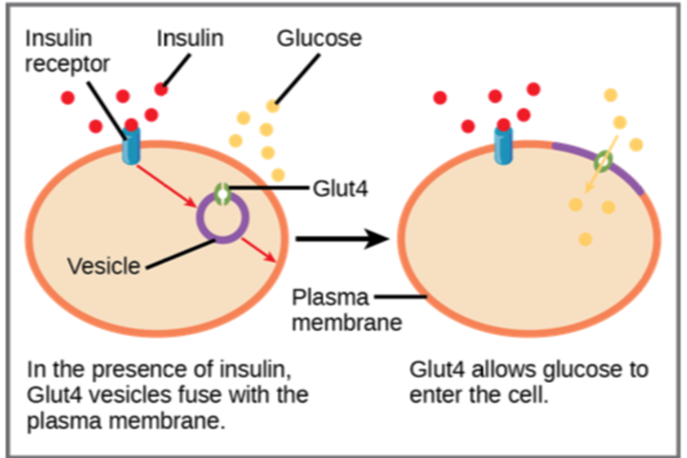What is the function of the veins, and how do these vessels compare with the arteries?
What will be an ideal response?
Veins function to move blood toward the heart, usually carrying blood low in oxygen. Pulmonary veins are an exception to this pattern; they carry oxygen-rich blood. In comparison to arteries, veins have thinner walls with less muscle and a larger lumen. Valves are located within veins; their function is to prevent backflow. Circulation is due mostly to contraction of skeletal muscles, which forces blood upward, and to pressure changes caused by breathing movements.
You might also like to view...
Which hormone involved in reproductive functions is produced outside the gonads?
a. testosterone b. estrogen c. progesterone d. follicle-stimulating hormone e. prolactin
What will occur most immediately after the process shown in the diagram?

a. Phosphofructokinase reactions will be inhibited.
b. Glucose-6-phosphate levels will decrease.
c. Glucose-6-phosphate levels will increase.
d. Phosphofructokinase reactions will increase.
Which of the following CANNOT be made by using recombinant DNA technology?
a. Vaccines b. Human hormones c. Pharmaceutical drugs d. Life e. Pest-resistant crops
What is one of the differences between genetic and cultural transmission?
a. Only cultural transmission involves the transfer of information. b. Only genetic transmission is prone to errors (= mutations). c. Cultural transmission can work both vertically and horizontally. d. None of the above.